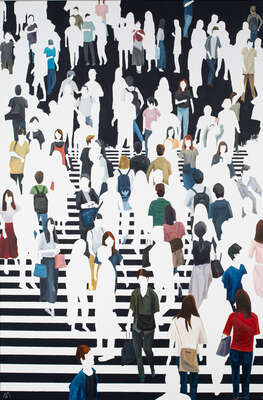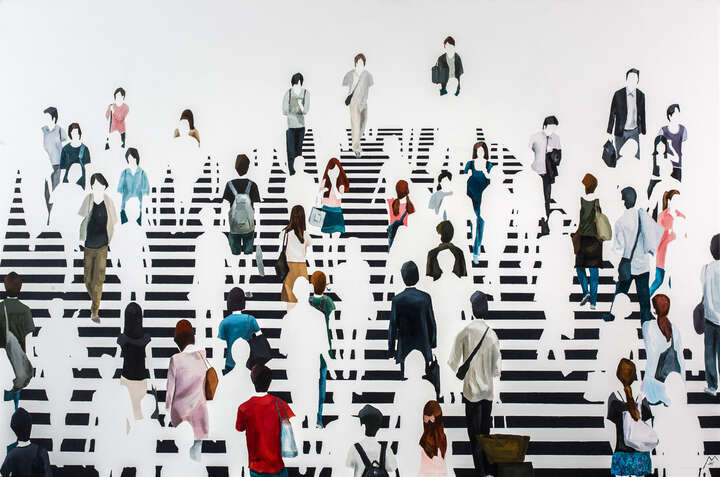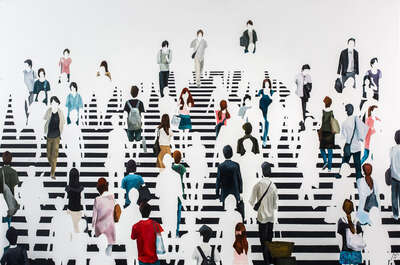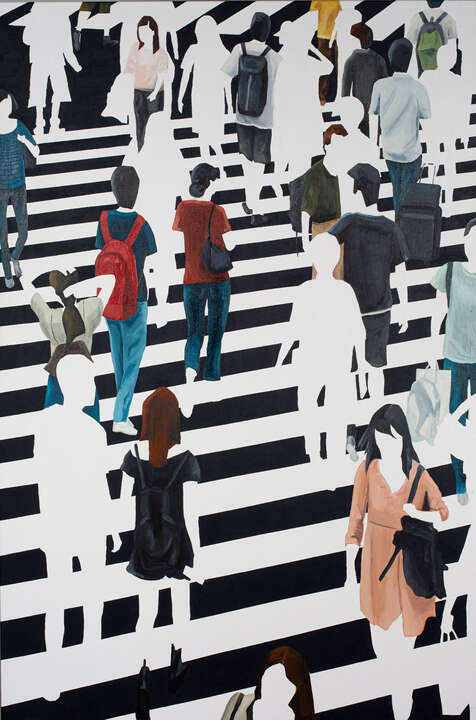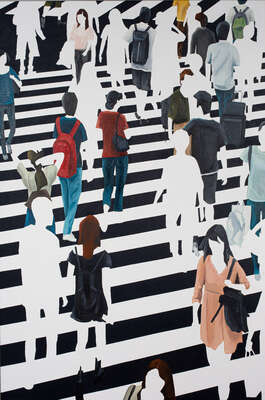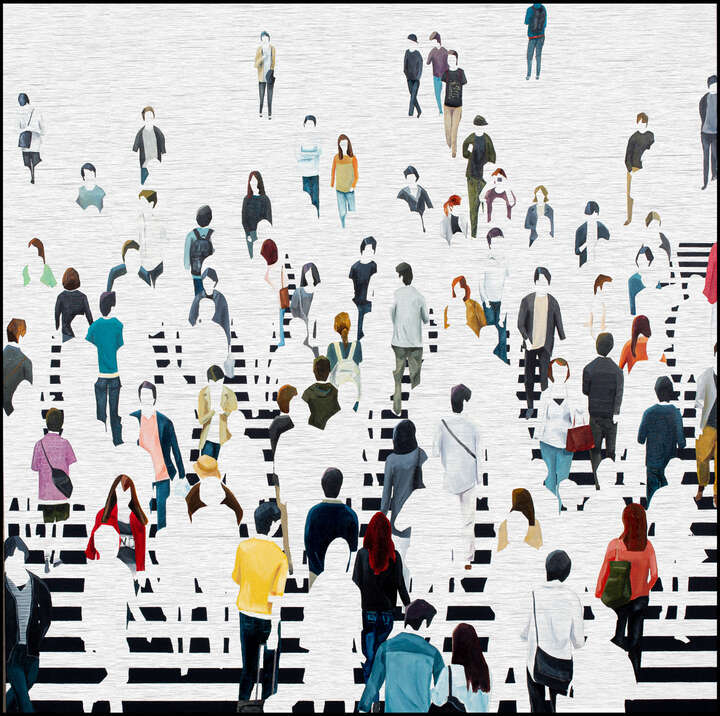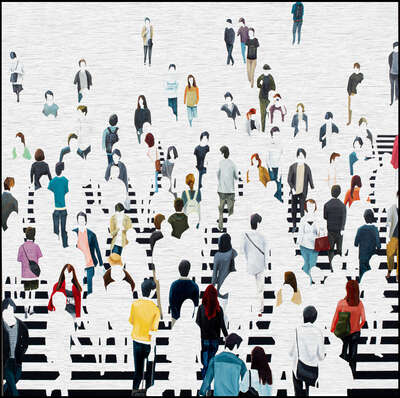Introduction
Zebra Crossing
The Shibuya Crossing in Tokyo is one of the most impulsive intersections in the world. For hardly a minute all car traffic is stopped. Then thousands of rushing pedestrians pour into five crosswalks, spilling in all directions. It’s a moment of sensory overload for Spanish artist Martta García. She reinterprets this incomprehensible flow of people into a binary system of seen and unseen, which is based off the concept of human sight as a system of conscious and unconscious perception.
The zebra crossing and its alternating colors thus become an artificial retina, with certain content deliberately omitted and revealed only as silhouettes. Not unlike the process of human sight that takes place within the brain: we unconsciously omit certain details and automatically supplement others based on predetermined patterns and visual habits. García uses the crosswalk imagery to illustrate and reflect upon this process. Thereby, the crosswalk also becomes a painted catwalk, where all sorts of characters stride, visibly or invisibly. The interplay of abstract forms, saturated colors, and bold figures construct surprising narratives and visual situations and then condenses them into a compressed visual field.
The artist was born in 1974 and has always been fascinated by crowds – the people, the passing glances, the gestures, the walking styles, the hidden, or sometimes performative, feelings. Her work process begins by taking photographs of busy street intersections, which she then uses as a base for her conceptual paintings. The blank spaces are filled by the viewer’s own associations and visions. In which moment they might reflect upon their own seeing habits, perhaps even change the way they perceive the world. With several awards and a well-established following in Spain, the works by Martta García are increasingly winning over the international art market.
Stephan Reisner
Bio
Born in 1974 in Zaragoza, Spain |
In 2013 she starts working with painter Eduardo Lozano |
Lives and works in Zaragoza, Spain |
Exhibitions
Solo Exhibitions
| 2018 | Zebra Crossing, Marisa Cervantes Gallery, Zaragoza, Spain |
| 2017 | Invisible, Obra cultura de la CAI, Zaragoza, Spain |
| 2014 | On the streets, Ayuntamiento Villahermosa del Campo, Spain |
| 2014 | Visible, Boston Hotel, Zaragoza, Spain |
Group Exhibitions
| 2021 | Capsula 23, Calatayud University, Calatayud, Spain |
| 2020 | Zebra Crossing, Eisenhauer Gallery, Edgartown, USA |
| 2018 | Prize Francisco Pradilla, Villanueva de Gállego, Spain |
| 2015 | Studio Eduardo Lozano, La senda del delirio, Zaragoza, Spain |
| 2014 | Prize Jose Lapayese, Teruel, Spain |
